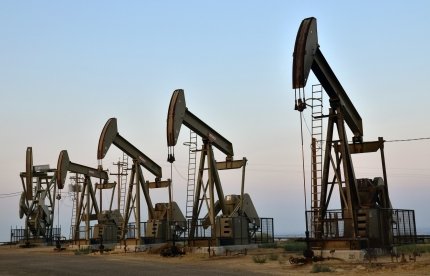The world's largest oil exporter, Saudi Arabia, intends to abandon keeping the unofficial price of oil at the level of $100 per barrel in order to increase production from December 1 this year.
Points of attention
- Saudi Arabia has decided to stop holding down oil prices by abandoning the unofficial $100 per barrel target, aiming to increase production starting from December 1.
- The country plans to boost oil production by 1 million barrels per day by December 2025, deviating from previous production cuts and signaling a shift in strategy.
- Saudi Arabia's decision may lead to a significant increase in oil production, potentially causing a further drop in prices on the world market and impacting global supply and demand dynamics.
- The move by Saudi Arabia reflects its interest in balancing the budget, implementing economic reform projects, and safeguarding its market position amidst evolving market conditions and competition from other oil producers.
- The kingdom's shift in oil production strategy may indicate a willingness to adapt to changing market dynamics, which could have far-reaching implications for the energy sector and global economies.
How will Saudi Arabia's refusal to hold down oil prices affect the market
According to the newspaper's journalists, initially Saudi Arabia planned to increase oil production starting from October, but against the background of the two-month delay, all sorts of speculations arose.
The price of Brent crude fell briefly below $70 earlier this month, hitting its lowest level since December 2021.
According to officials, the country plans to increase oil production from December 1, as planned from the beginning.
At the same time, the country's authorities are ready even for a long-term decrease in oil prices.

The country heads OPEC+, which has repeatedly cut production since 2022 in order to maintain prices.
Brent crude averaged $99 a barrel in 2022, its highest in eight years, as the fallout from Russia's invasion of Ukraine rattled markets, but has since eased.
Increased supply from non-OPEC producers, including the US, and weak demand in China have over time reduced the impact of the group's output cuts.
According to the IMF, Saudi Arabia is interested in keeping oil prices at $100 per barrel to balance the budget, as the country intends to implement a number of high-cost projects that form the basis of economic reforms.
What is known about the volume of increase in oil production by Saudi Arabia
However, the government of Saudi Arabia has decided to increase oil production because it does not want to lose its market position to other producers.
The country's leadership is convinced that it has enough alternatives to finance its own needs in the conditions of a long-term decline in oil prices.
Saudi Arabia has taken the brunt of OPEC+'s cuts, cutting output by 2 million barrels per day over the past two years, more than a third of the group's total cuts.
The kingdom is currently producing 8.9 million barrels per day, the lowest since 2011.
Under the delayed production cut plan, Saudi Arabia will increase production by 83,000 barrels per day per month starting in December, bringing total production up by 1 million barrels per day by December 2025.




